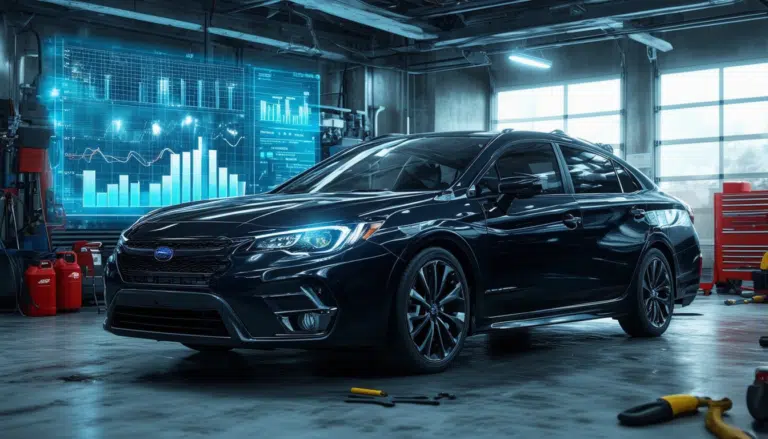Coches eléctricos y de gasolina: Pros y contras que debes conocer

The choice between electric cars and gasoline cars has become a crucial topic in the context of current mobility, where environmental concerns and the search for sustainable alternatives are increasingly relevant. Each type of vehicle has advantages and disadvantages that affect not only the environment but also personal economy and convenience. Understanding these pros and cons is essential to making an informed decision about which type of car best suits individual needs and the future vision of more sustainable transport.
The decision to choose an electric car or a gasoline car is becoming increasingly relevant in the current context of sustainable mobility. Environmental concerns, along with technological development, have led to a growing interest in these alternatives. This article examines the advantages and disadvantages of both types of vehicles, helping consumers make informed decisions based on their needs and preferences.
Pros and cons of electric cars
Benefits of electric cars
Electric cars stand out mainly for their environmental benefits. By not emitting exhaust gases, they contribute to reducing air pollution in cities. Additionally, if the electricity used to charge them comes from renewable sources, their carbon footprint is minimized even further.
Another important advantage is their energy efficiency. Electric motors convert energy more efficiently than internal combustion engines, resulting in lower electricity consumption per kilometer traveled.
Additionally, maintenance costs tend to be lower, as electric vehicles have fewer moving parts and do not require oil changes, which simplifies their long-term maintenance.
Challenges of electric cars
Despite their benefits, electric cars present significant challenges. One of the main issues is the charging infrastructure, which, although expanding, may be insufficient in some areas. This can raise concerns about range during long trips.
Furthermore, the production of batteries poses environmental problems, with the extraction of minerals potentially causing ecological damage. The initial purchase cost is also often higher than that of gasoline cars, which may deter some buyers.
Pros and cons of gasoline cars
Advantages of gasoline cars
Gasoline cars have established themselves as a conventional option in the automotive market. One of their main benefits is the extensive network of service stations, allowing for quick and convenient refueling during trips.
Additionally, they offer greater range compared to many electric models, enabling longer trips without worrying about refueling.
On the other hand, initial costs are usually lower compared to electric vehicles, making them more accessible to a wide range of consumers.
Disadvantages of gasoline cars
However, gasoline cars also face criticism in terms of environmental impact. They are responsible for CO₂ emissions and other pollutants that contribute to climate change and public health issues associated with air pollution.
Moreover, the cost of fuel often varies and can be less predictable, potentially leading to unforeseen expenses for drivers. They also require more frequent maintenance, with costs associated with oil changes and other repairs related to the combustion engine.
Comparison of acquisition and maintenance costs
When considering the purchase of a car, it is important to compare initial and maintenance costs over its lifetime. Electric cars typically have a higher purchase price, although there are government incentives that can help reduce this initial cost. In contrast, gasoline cars are usually more affordable to acquire but incur regular expenses related to fuel and more frequent maintenance due to their more complex mechanical components.
Environmental impact and sustainability
The environmental impact is a crucial factor in the decision between electric and gasoline cars. Electric cars offer a reduction in emissions during use, being especially advantageous when the electricity comes from clean sources. However, the production of their batteries and the complete life cycle must also be considered.
On the other hand, gasoline cars are responsible for greater atmospheric pollution, although their production may be less harmful compared to battery manufacturing. Future sustainability will depend on advances in the production of both technologies and the use of renewable energy sources.
Infrastructure and range
The charging infrastructure for electric cars is still developing and increasing, which may reduce range anxiety among users. Gasoline cars continue to benefit from a well-established infrastructure. However, advances in battery technology promise to improve the resistance and ease of recharging for electric cars over time.
Technological advances and the future of mobility
Both types of cars are experiencing constant technological innovations. Electric cars are improving in terms of range and charging times, while gasoline cars continue to evolve to meet stricter emissions regulations. The future of mobility will depend on the widespread adoption of clean and efficient transportation solutions, implying a path that combines advances in both technologies.
Conclusions on Electric and Gasoline Cars: Pros and Cons
The choice between electric and gasoline cars emerges as a critical decision in the current context of sustainable mobility and concern for the environment. Both types of vehicles offer significant advantages and disadvantages, each with features that may appeal to different consumers depending on their needs and values. Electric cars are positioned as a more ecological alternative, with lower CO₂ emissions and potentially reduced environmental impact if the electricity used comes from renewable sources. Additionally, their maintenance costs tend to be lower in the long run due to the simplicity of their motors.
On the other hand, gasoline cars remain popular for their accessibility and convenience. The infrastructure of service stations is well developed, allowing for quick refueling, which is a positive point for those taking long trips. Also, the power and road performance of a gasoline car may be more appealing to driving enthusiasts.
However, the future increasingly tilts toward electrification, driven by government policies and a growing commitment from consumers towards more sustainable mobility. As battery technology advances and charging infrastructure expands, it is likely that electric cars will become the preferred option for more people. Nonetheless, the transition is not without challenges, such as the need to properly manage resources for battery production and ensure clean energy sources.
In the end, the decision to opt for an electric car or a gasoline one will depend on personal factors, such as lifestyle, inclination towards sustainability, and assessment of the total cost of ownership. Therefore, it is essential that consumers become informed and evaluate all implications of each type of vehicle before making a decision.




